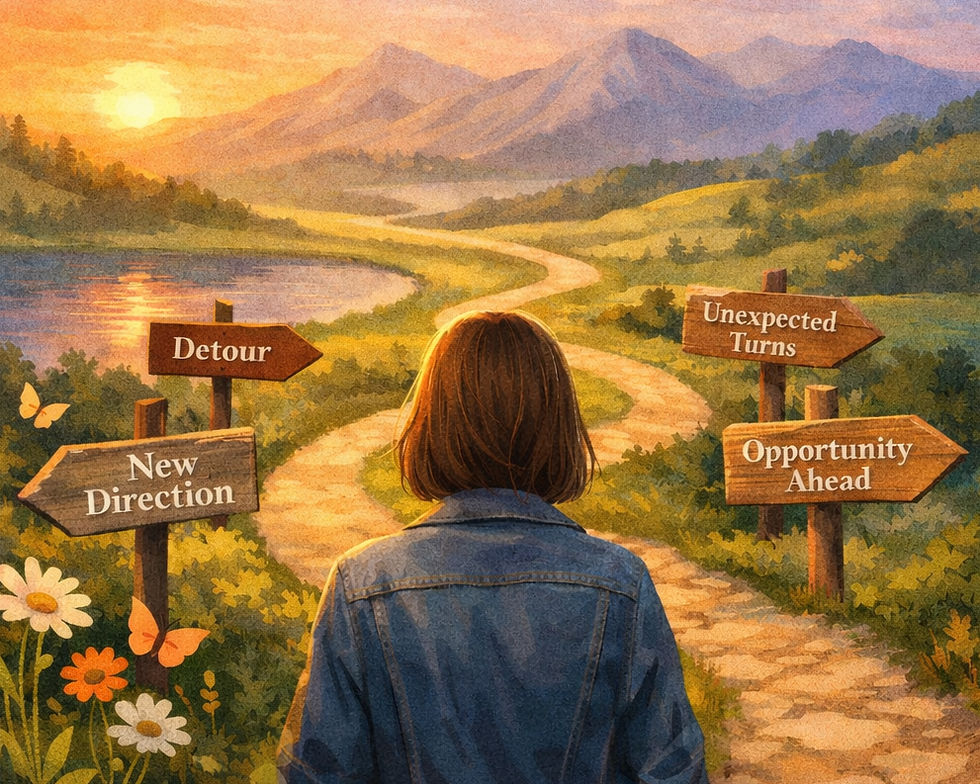My Life Belongs To Me. Does Yours Belong To You?
- Thomas Wood LCSW

- Jun 25, 2025
- 3 min read
When does your life stop being something that was handed to you, shaped by other people, and start being something that’s yours?
Not “yours” as in you pay your own rent or make your own doctor’s appointments (though, yes, that too). I mean: when do you stop living in reaction to your parents? When do you stop blaming them—for what they gave you, or didn’t give you, or meant to give you but somehow missed?
This isn’t a rhetorical question. There’s an answer. It comes at different times for different people, but it has to come. If it doesn’t, you stay stuck—trapped in this loop of blame, rage, guilt, shame, longing. You keep rewriting your story to make sense of how they did or didn’t show up, hoping it’ll somehow fix the way it still hurts.
For me, that moment came the summer after I turned 24. I’d been furious with my dad for over a year. Not irritated. Not annoyed. Furious. The kind of anger that scorches your insides. I carried it with me like armor. Family gatherings were unbearable. We either glared at each other or pretended the other didn’t exist. My chest stayed tight all the time. I couldn’t let it go, and honestly, I didn’t want to. Anger was power. It was a wall I could hide behind.
But that summer, something shifted. We were in a car in the parking lot of some restaurant, sweating in the August heat while the rest of the family went inside. The air conditioning in the car kept clicking on and off. We weren’t going to pretend anymore. We yelled. I told him everything I thought he did wrong. Every way I thought he failed me. I was honest—brutally so.
And then he said something that cracked everything open.
He said, “I gave you my best.”
He meant it. Not in a defensive way. In a tired, human way. “I gave you everything I had. I didn’t know what else to do.”
I heard it. Not just the words—the truth in them. And the pain. The disappointment he carried, not just in me, but in himself. I realized, right there in that sweaty car, that my father wasn’t a villain. He wasn’t some towering force I had to rage against. He was just a guy. A man who tried. A father who loved me the best way he could.
In that moment, I forgave him. Not because he asked for it. Not because he had done anything wrong. But because I saw him clearly for the first time. Not as the all-powerful parent of my childhood, but as a person. A good person. A hurt person. A person who did his best, and that was enough.
As I forgave him, something unhooked in me. The blame fell away. So did the story I kept telling myself about how things should have gone. My life stopped being an echo of what he had or hadn’t done, and started becoming something else entirely. Something that was mine. Mine to shape. Mine to take responsibility for.
From that moment on, I couldn’t keep saying, “This is how I am because of my dad.” That wasn’t true anymore. I had a choice: keep circling the past, or move forward and create something new and real. I chose to move forward and became a therapist.
This moment has to come for all of us. If you want to become an adult—not just in age, but in soul—you have to stop living your parents’ life. You have to stop holding your parents responsible for your happiness. You have to stop waiting for them to fix something they maybe don’t even understand.
Whether they were amazing or awful, whether they loved you fiercely or left you behind, they did what they did. You may feel grief about that, and that’s ok. Grieve it, feel it, and when the grief subsides, ask yourself the question: So what? What will you do with what you’ve been given?
This isn’t about pretending the hurt didn’t happen. It’s about deciding that your future matters more than your past. It’s about choosing to take the pen and write your own story, starting exactly where you are.
Not their story. Yours. Because now, if you dare to take it, your life belongs to you.




Comments